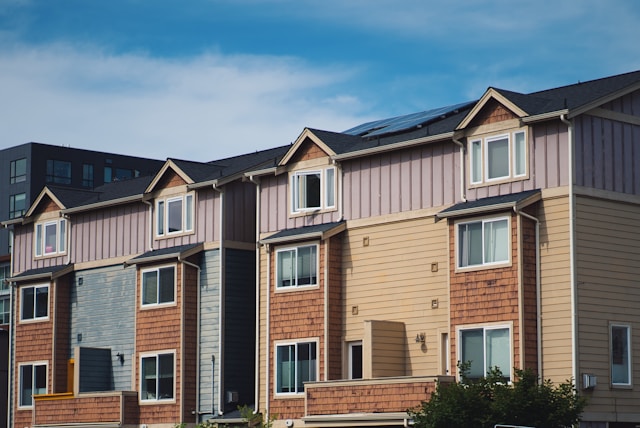Owning a rental property in a Homeowners Association (HOA) comes with distinct advantages and disadvantages. Here’s a detailed look at both:
- Pros of Owning a Rental Property in an HOA
- Maintenance and Upkeep
- Common Area Maintenance: HOAs often take care of landscaping, snow removal, and other common area maintenance, reducing the property owner’s responsibilities.
- Exterior Upkeep: Some HOAs handle exterior maintenance, such as roof repairs or painting, which can lower maintenance costs for the owner.
- Amenities
- Shared Amenities: HOAs often provide amenities like pools, gyms, clubhouses, and parks, which can attract renters looking for these features.
- Community Services: Additional services, such as security patrols and waste management, add value to the property.
- Property Values
- Stability: HOAs enforce rules that maintain a certain standard in the neighborhood, potentially stabilizing or increasing property values.
- Appearance: Regulations on property appearance and landscaping help keep the neighborhood attractive, appealing to renters and buyers alike.
- Rules and Regulations
- Standardization: Clear rules can prevent disputes among neighbors and ensure a harmonious living environment.
- Nuisance Control: Restrictions on noise, pets, and parking can reduce potential nuisances, making the property more desirable for renters.
- Cons of Owning a Rental Property in an HOA
- Fees
- HOA Dues: Monthly or annual HOA fees can be substantial, impacting the overall profitability of the rental property.
- Special Assessments: Unexpected special assessments for major repairs or improvements can be costly.
- Restrictions
- Rental Restrictions: Some HOAs have rules limiting the number or percentage of units that can be rented, which might complicate your ability to rent out the property.
- Tenant Approval: HOAs may require tenants to be approved by the board, adding an extra step to the rental process.
- Rule Enforcement
- Compliance: Strict enforcement of HOA rules can lead to fines or penalties if tenants or owners violate regulations.
- Autonomy: Owners may feel a lack of control over their property due to the need to comply with HOA regulations.
- Conflicts
- Board Disputes: Disagreements with the HOA board or other homeowners can create tension and complicate property management.
- Inconsistent Management: The quality of HOA management can vary, affecting the overall experience and satisfaction of property owners and renters.
Conclusion
Owning a rental property in an HOA can be beneficial due to the maintenance support, amenities, and potential for stable property values. However, it also comes with significant drawbacks, including fees, restrictions, and potential conflicts. It’s important to thoroughly review the HOA’s rules, fees, and management practices before purchasing a property to ensure it aligns with your investment goals and management style.
